‘If I say I’m poor, there’s someone poorer’: Struggling mum of 4 finds time to help others in pandemic
ComCare recipient Sara has had to stretch her budget to feed her children, while managing to do volunteer work in her neighbourhood. She tells her story in the CNA Insider special, Surviving Recession: How 12 Singaporeans Weathered COVID-19's Economic Fallout.
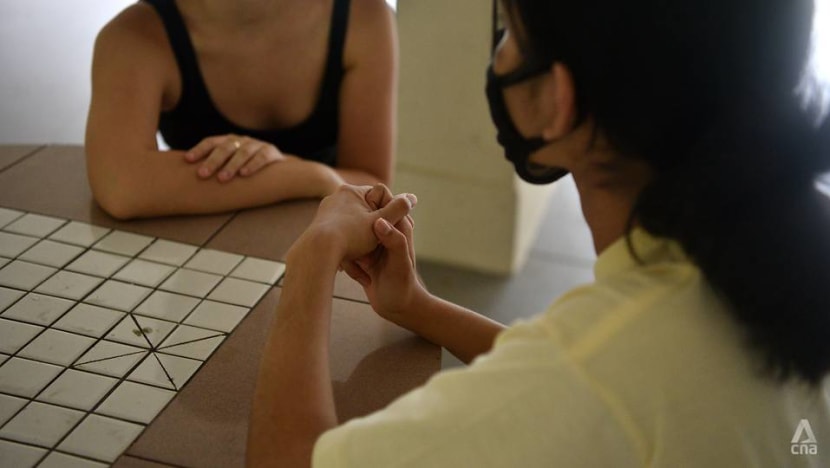
Meeting people when she volunteers in the neighbourhood helps Sara to de-stress.
SINGAPORE: Her parents pulled her out of Primary One so she could look after her newborn brother.
At the age of 14, she was sent to the Singapore Girls' Home for more than two years. At 21, she became a mother.
Now aged 36 and with four children aged seven to 15, Sara (not her real name) has, in her own words, been through “a lot of struggles in life”. The COVID-19 pandemic nonetheless brought about fresh challenges.
When the family had to stay at home in their rental flat during the circuit breaker in April and May, the children had to do home-based learning using two laptops.
“Four kids, two laptops, you tell me how,” said Sara, who spoke on condition of anonymity and declined to talk about the father of her children.
“Quarrel, you know. Sometimes the smaller ones would (access their Student Learning Space) first, then the older ones would do it later.”
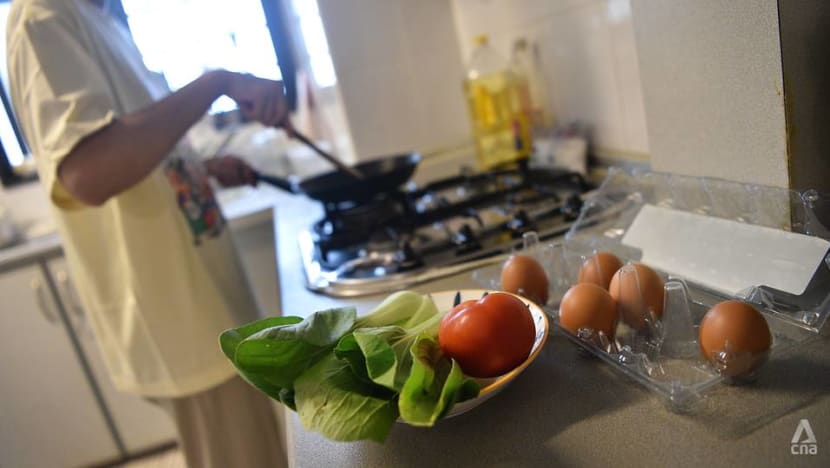
The household’s single source of income dried up because of the pandemic, and they had no savings to fall back on. The family found themselves having to cope with less than usual last April.
Sara is one of 12 ordinary people whom CNA Insider tracked to find out how Singaporeans were affected by the recession, and how they found the wherewithal to pull through.
EXPLORE THE INTERACTIVE SPECIAL: Surviving recession: How 12 Singaporeans Weathered COVID-19's Economic Fallout
Her family has been hit harder than the average poor family whose household income from work fell by 69 per cent last year, according to a study of applicants for assistance by Beyond Social Services.
But welfare benefits and financial discipline, as well as looking to help those who are even worse off than her, have helped to keep her going.
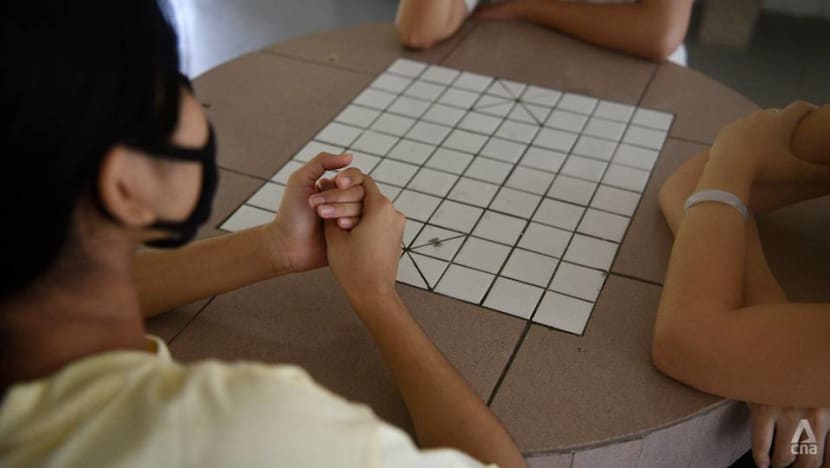
A LESSON IN BUDGETING
From January to March last year, Sara received S$400 a month in ComCare assistance, but that temporarily stopped when she did not submit some documents.
She said they relied on the S$210 given each month by another organisation, and a Ministry of Social and Family Development (MSF) spokesperson said the family received S$120 in interim assistance in April.
Although there have been other purse-tightening periods in Sara’s life — when the children were younger and needed milk, diapers and to see a doctor, for instance — she said the biggest lesson from the pandemic has been budgeting.
“What’s going to happen next, you don’t know. So when you want to spend on something, you must actually think, do I have the money? If it’s for the (household), then can, lah. If not, then no need.”
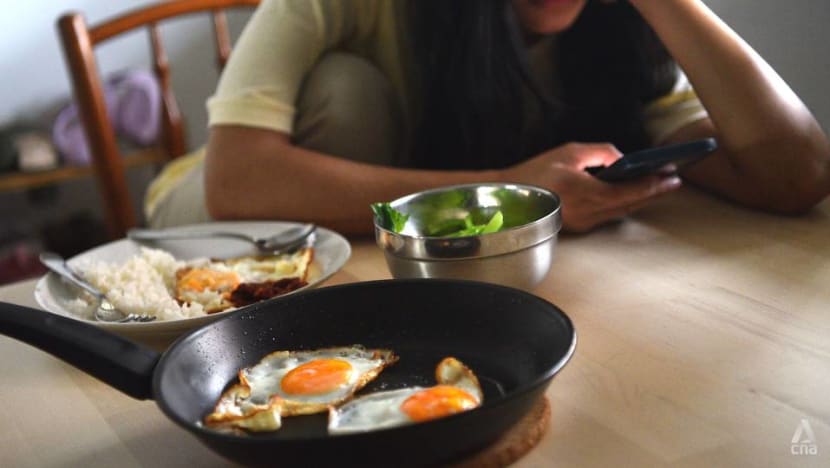
If money was very tight, Sara bought only vegetables and cooked whatever provisions were at home, such as sardines or rice.
She got creative with eggs, one of the most affordable protein sources, and cooked them with sambal, curry, ketchup or soya sauce.
When she was very stressed or busy, she would eat a small portion. “As long as my kids eat, I’m okay,” she said.
When ComCare assistance resumed before Hari Raya Puasa last May, she could buy toiletries and more types of food, such as meat and fish. But she also made a point of saving S$100 to S$200 a month for emergencies.
“Although it’s not much, slowly it’ll grow,” she said. “And if there’s really an emergency, I’ll use it.”
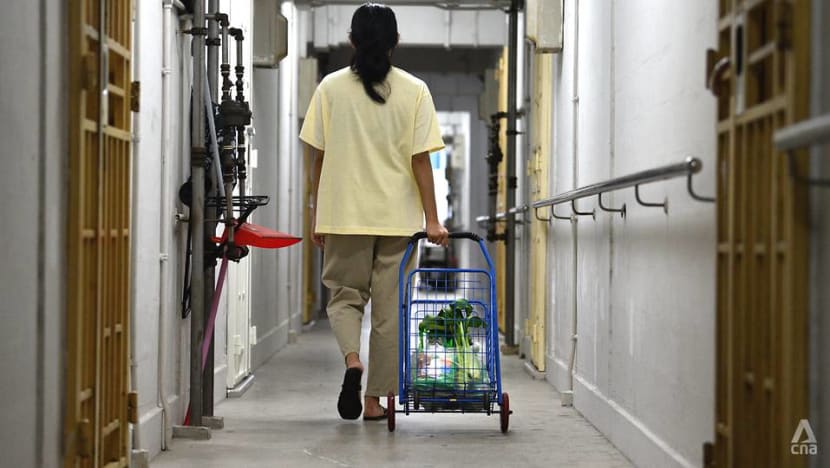
Owing to movement restrictions, Hari Raya visiting was not an option, so the family saved on new clothes and shoes.
Between April 8 to June 1 last year when students were having home-based learning and their school holidays, her children also received S$140 in meal support each, according to the MSF.
The Ministry of Education still provides meal subsidies for them, as well as periodic vouchers to buy stationery and school supplies, she said.
The MSF added that her household received S$1,300 in cash per month between May and October and is receiving ComCare support until this month, on top of subsidies for rental, utilities, service and conservancy charges and medical needs.
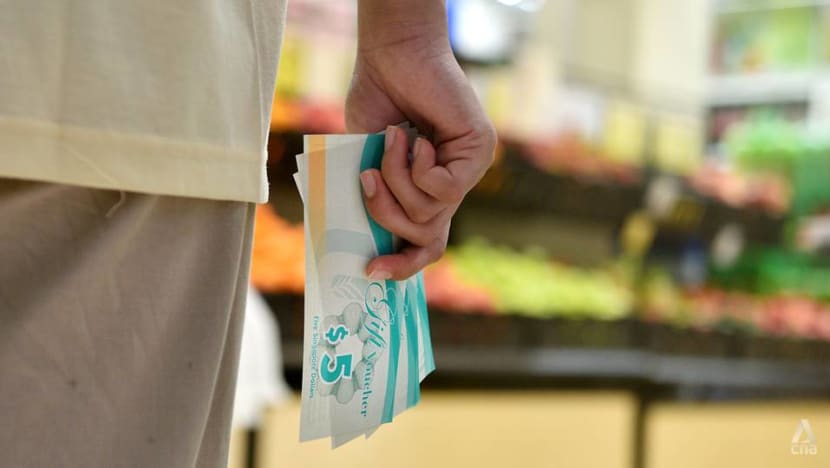
Sara said they also receive food rations from non-profit organisation Pertapis and the Residents’ Committee, as well as supermarket vouchers worth S$300 every two months and other financial assistance from Beyond Social Services.
HELPING NEIGHBOURS, RELIEVING STRESS
During the pandemic and even before that, volunteer work has been a major stress reliever. Since 2018, Sara and her friends have bought, packed and distributed food and other necessities to the vulnerable elderly in their estate once a month.
They now reach out to 18 households, from about 10 initially. According to Sara, the items are sponsored by a woman who also offers free tuition to children in the neighbourhood.
“We order things like rice, eggs and Milo from the nearby supermarket, and a few days later we collect. When we pack the items, we’re happy because we laugh and chit-chat,” she said.
“When you give things to people and they receive it, you feel happy. I make new friends, I see new people. I know how my neighbours are. If I say I’m poor, there’s someone poorer.”
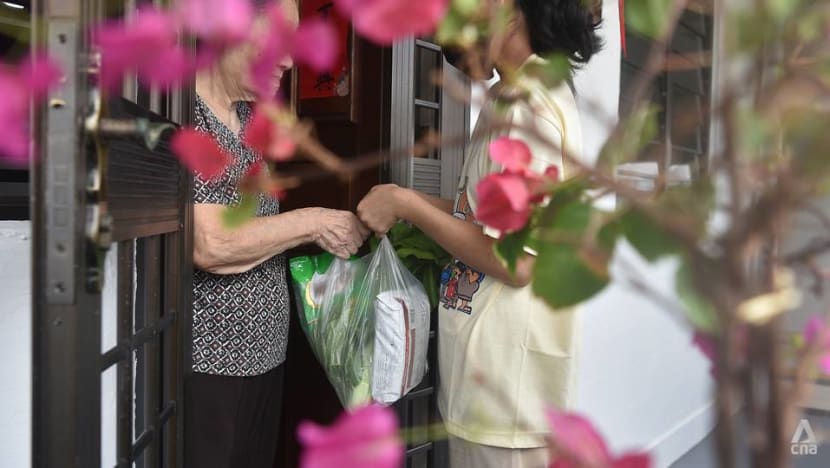
JOB-SEEKING, AND PARENTING TEENS
Sara also knows she must look for a job for her financial assistance to continue and the family’s income to grow. She has registered her two younger children for student care, and once they secure places, “I can slowly find work”, she said.
Administrative jobs are out because she lacks academic qualifications.
Sara declined to go into detail about her family circumstances when her parents pulled her out of school to look after her baby brother. But she said she learnt to read by watching television and from her grandmother, who read the newspaper.
She also declined to disclose why her mother sent her to the Girls’ Home. But she received some education and also learnt how to socialise and be more responsible.
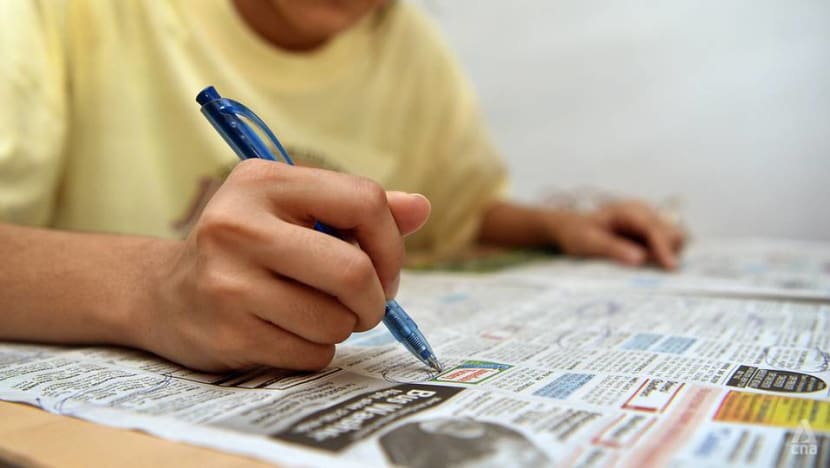
After she got out, however, she became “messed up again” when she mixed with the wrong company.
It was only after she had her first child that she stopped activities such as clubbing, smoking and drinking. “I didn’t want them to see that their mummy is like this. Kids would follow what you do,” she said.
She recently attended a two-month parenting course to communicate better with her two teenagers.
“We learnt to say thank you when (children) do good things … And when they break my rules, I’d say, no handphone for two hours or one hour — must be consistent, lah,” she said.
I want to let my kids feel they’re loved and that Mummy understands them, that Mummy knows how to handle the situation. And the kids can also understand what Mummy's trying to say and apply.
Sara has previously worked as a cashier, manicurist, cleaner and factory production worker. Her longest work stint lasted a year.
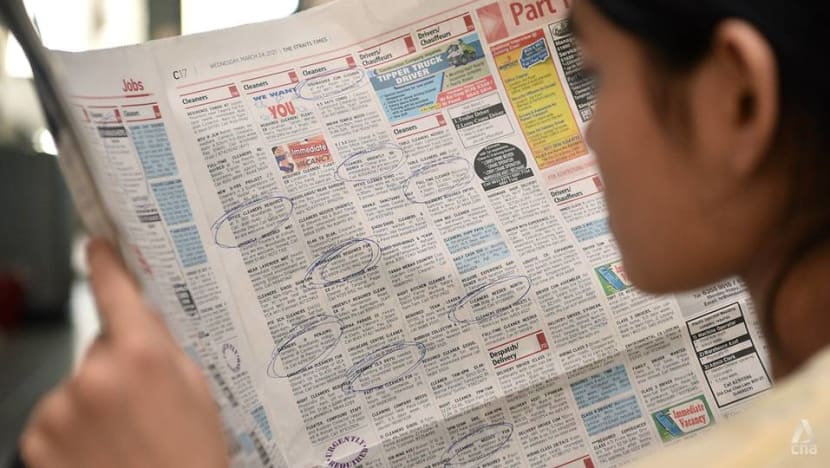
While she is likely to look for a factory job going forward, Sara dreams of becoming a counsellor someday as she can share what she has been through with others.
Besides being able to talk to her children for a few hours, she finds herself lending a listening ear to those around her.
“I counsel my mother, my uncle, my brother, everyone,” said Sara, who mentioned that she has already made peace with her mother.
Does she wish, however, that her education had not been cut short? “Maybe if I’d studied, I’d have become a different person. I don’t know,” she replied. “But … you can’t run (from) your own life.”
She hopes that her story can motivate others who are feeling stressed or depressed. “No matter the situation or your background, don’t give up,” she said.

















